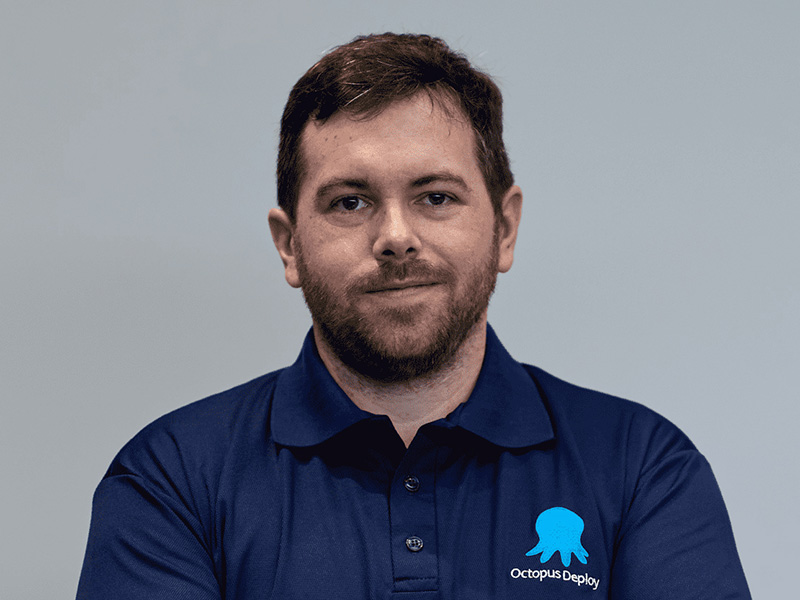Australian founders need to back themselves and focus on building sustainable, profitable small businesses rather than immediately looking for government support or outside funding, according to Octopus Deploy founder and chief executive Paul Stovell.
Octopus Deploy has quietly become an Australian tech success story, now with more than 4,000 clients, more than 300 employees and $100 million in annual revenue.
Octopus Deploy software is now the industry standard for continuous delivery, assisting 400,000 users to orchestrate software delivery across multi-cloud, Kubernetes, data centres and hybrid environments.

In its early days, Octopus Deploy did not participate in any incubator or accelerator programs, didn’t take outside funding until it was profitable, and didn’t even develop a pitch deck.
For Mr Stovell, more Australian founders need to take this approach rather than taking on large amounts of private funding in the early days, which can lead to unsustainable growth.
“Structurally, venture capital is trying to deploy capital over a very quick period of time to see a company build very fast,” Mr Stovell told InnovationAus.com.
“That’s not really aligned with building a profitable business. These companies are trying to disrupt the world, but every two years they’re trying to raise capital and passing around the bucket.
“That’s great up until a couple of years ago when it wasn’t. Then you see this hypocritical stance from investors who were saying, ‘we’ve always said you have to be profitable’. But the whole incentive structure was investing capital and expecting you to spend it very fast and to grow very fast and disrupt the world.”
Local tech companies need to instead set more attainable goals that can be reached without the need for hyperscaling.
“There are some companies that have started up in recent years, raised a lot of money and had decent products, but they don’t have enough revenue to cover their costs because they’ve hired all these people because they’ve been forced to deploy the capital quickly,” Mr Stovell said.
“And you just know they’re going to be out of business in a few years because they won’t be able to raise that next round of funding. All these businesses are aiming for billion-dollar outcomes when they could have just aimed for a $10 million outcome and been quite successful. It’s a shame.”
Mr Stovell discussed these issues and many more during his appearance on The Startup Playbook Podcast at Something Tech 2024 in Brisbane. The event featured headline international and national speakers, sharing thought-provoking work, concepts and technologies to enable us to think differently about the digital futures we are creating.
Something Tech runs annually as part of Something Fest, in collaboration with Advance Queensland, which is the government’s commitment for Queensland to become a leading and sustainable world-class innovation economy.
By prioritising a sustainable business model over venture capital-driven expansion, Octopus Deploy shows how Queensland companies can build globally competitive products while maintaining long-term stability and profitability.
Operating as a B2B tech firm, Octopus Deploy’s success largely flew under the radar until 2021, when it secured a massive US$172.5 million investment from New York-based venture capital firm Insight Partners. At the time, this was the second-largest growth investment in an Australian software company of all time.
“We came to prominence from that fund raise,” Mr Stovell said.
“Our customers obviously knew who we were and venture firms and private equity who research the space were very much aware of us, but no-one else had heard of us before those articles came out.
“Before then, we just ran our business well and kept our heads down. Since then we’ve done the same – not too much has changed.”
Octopus Deploy is based in Queensland, and Mr Stovell said there are significant benefits to being based in a smaller tech ecosystem with less access to wealth of venture capital funds.
“In some ways it’s easier to build a successful business here – I meet companies in Silicon Valley and they have the opposite problem,” he said.
“Money is so easily available for funding that the idea of just running a profitable business that’s successful over 10 years doesn’t really compute — why would you do that? But I don’t think that’s a good result for those businesses.”
Something Fest also focused on how governments at all levels can assist with the growth of the local tech sector. Mr Stovell believes their main role should be reducing red tape around the process of running a business, something the Queensland government has been good at, he said.
“The federal government needs to remove the red tape, a bit every year,” Mr Stovell said.
Two areas where this could be done are with employee share schemes and the research and development tax incentive, according to Mr Stovell.
This article was produced by InnovationAus.com in partnership with Something Tech, part of Something Fest.
Do you know more? Contact James Riley via Email.
